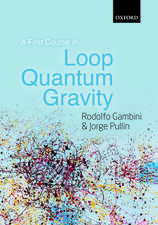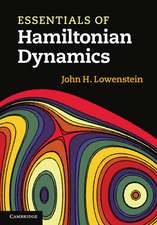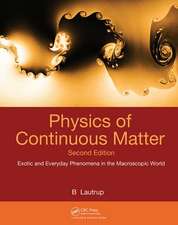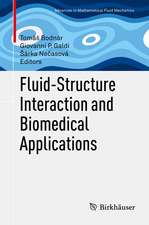Tensor Analysis and Continuum Mechanics
Autor Wilhelm Flüggeen Limba Engleză Paperback – 4 iun 2012
Preț: 524.63 lei
Preț vechi: 617.21 lei
-15% Nou
Puncte Express: 787
Preț estimativ în valută:
100.40€ • 104.43$ • 82.89£
100.40€ • 104.43$ • 82.89£
Carte tipărită la comandă
Livrare economică 14-28 aprilie
Preluare comenzi: 021 569.72.76
Specificații
ISBN-13: 9783642883842
ISBN-10: 3642883842
Pagini: 216
Ilustrații: VIII, 207 p.
Dimensiuni: 155 x 235 x 11 mm
Greutate: 0.34 kg
Ediția:Softcover reprint of the original 1st ed. 1972
Editura: Springer Berlin, Heidelberg
Colecția Springer
Locul publicării:Berlin, Heidelberg, Germany
ISBN-10: 3642883842
Pagini: 216
Ilustrații: VIII, 207 p.
Dimensiuni: 155 x 235 x 11 mm
Greutate: 0.34 kg
Ediția:Softcover reprint of the original 1st ed. 1972
Editura: Springer Berlin, Heidelberg
Colecția Springer
Locul publicării:Berlin, Heidelberg, Germany













